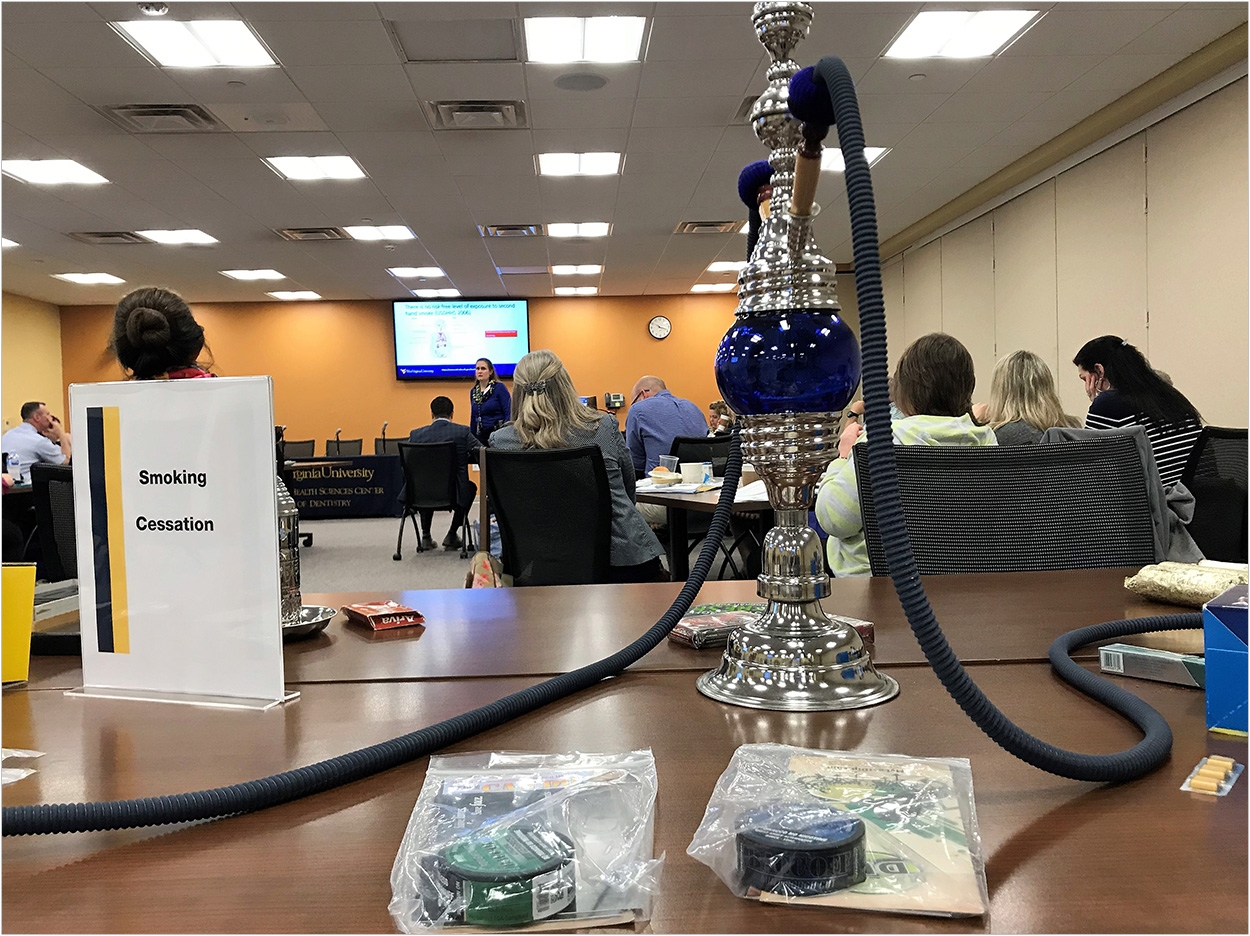
Quitting smoking is difficult, as smokers may make 30 or more attempts to kick the habit before being successful, according to the West Virginia University (WVU) School of Dentistry, which also notes that inconsistent and contradicting treatment plans from dentists, physicians, pharmacists, and other healthcare providers only add to the challenges.
Last fall, the WVU School of Dentistry became the first dental school to be certified by the Council for Tobacco Treatment Training Program (CTTTP) to teach others about evidence-based treatments that meet the diverse needs of tobacco users who have an interest in quitting. The school held its first classes in May and June.
If one provider is familiar with the most effective cessation treatment but another provider treating the same patient is not, that patient could run into trouble having prescriptions filled, says Susan Morgan, DDS, clinical professor and lead of the tobacco treatment training program at the WVU School of Dentistry.
“It’s disheartening when various providers for the same patient are not in agreement with use of evidence-based recommendations for tobacco cessation treatment. This program has the potential to improve cessation rates and improve the quality of life for our number one concern, our patients,” said Morgan.
The program is aimed at getting physicians, dental professionals, pharmacists, respiratory therapists, counselors, and others to follow similar guidelines and work interprofessionally to determine cessation solutions specific to each patient.
This summer, 19 participants successfully completed the dental school’s four-day curriculum, which included extensive discussion, case study review, role playing in the areas of behavioral therapy, medicine, and nicotine replacement therapy, and advice to address relapse. Certification in the program required 24 contact hours and a score of 80% or higher.
Participants were from West Virginia, Ohio, Maryland, and Texas, with backgrounds in medicine, nursing, dentistry, social work, pharmacy, and respiratory therapy. Presenters had expertise in dentistry, medicine, nursing, counseling, dental hygiene, head and neck cancer, and advanced pharmacy.
“The goal is, no matter what role you play, being proactive and getting to the end goal of sticking up for the patient and presenting other options,” said participant Faith Lewis of Respiratory Therapy Care Management for Outpatient Services at Meritus Health, who earned certification at the course that allows her to practice in Maryland.
“Patients get mixed reviews and then they wonder who is right and who is wrong and then it makes them doubt. If they doubt, I feel they will be less successful versus being more confident in their provider,” Lewis said.
Gregory Sweitzer, MD, a family physician and United States Air Force consultant, successfully completed the certification program and noted a tendency for academic isolation within healthcare education programs.
“Some of it goes back to the way we train. Even in medicine, we train in our stovepipes. Doctors train over here. The nurses train over here. Medical assistants or technicians train over here. And some medical schools are now going back to train together as a team like you would practice publicly,” Sweitzer said.
“The speakers did a marvelous job. I feel more competent in prescribing the correct nicotine replacement therapy or oral medication now,” said family nurse practitioners Rose Clark, who also completed the certification course.
“As a family doctor, often I don’t have enough time, or at least that’s how we feel, to address tobacco, either smoking or smokeless tobacco. Often it’s the third or fourth thing on the agenda in a short 15- or 20-minute appointment. So, anybody else in the healthcare system who can help with that venture, whether it’s dental, disease management, social worker, or counselor, it would be helpful,” said Sweitzer.
“Nicotine dependence is one of the most important risk factors to address to improve the health of West Virginia and all Americans,” said Lauren Swager, MD, who was one of the presenters during the course. “It requires a comprehensive team that is inclusive of all members of the healthcare community to address the complexities and challenges of nicotine use,”
Swager, who also is an associate professor in the Department of Behavioral Medicine and Psychiatry at the WVU School of Medicine, has participated in the treatment of adults and adolescents with a variety of addictions and substance abuse problems. She said she is encouraged by the opportunity to educate other providers and learn from them as well.
“Participants gain firsthand and up-to-date knowledge about all aspects of care, including medications for use to address withdrawals and cravings, motivational interviewing, group therapy, and society/cultural interventions to tackle the problem,” Swager said.
“Any and all healthcare providers will feel empowered and informed to improve the care of their patients in addressing nicotine use after this course. I couldn’t be more pleased to see WVU lead the front in addressing this much needed gap in healthcare,” she said.
Plans are underway for another CTTTP continuing education course within a year.
Related Articles
ADHA and CDC Launch Smoking Cessation Campaign
Talk to Your Patients About Smoking on World No Tobacco Day
WVU School of Dentistry to Offer Tobacco Treatment Training












